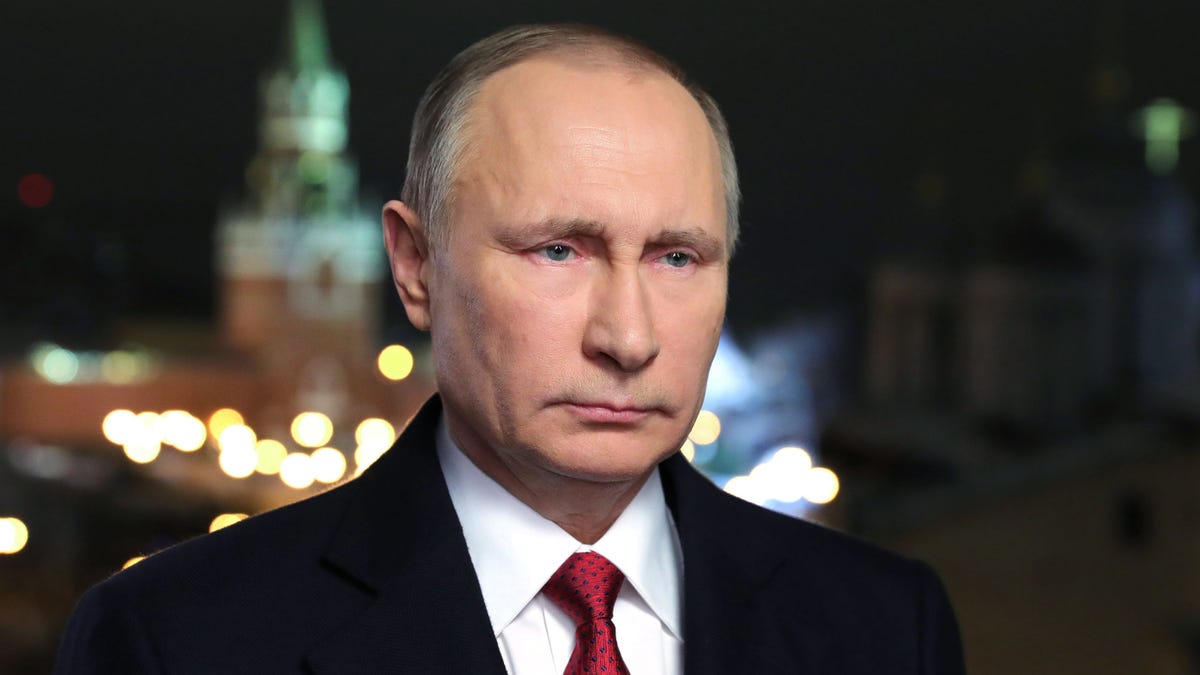Recent talk about a potential European Union move to establish its own nuclear weapons program is being met with skepticism by some top U.S. experts on the matter.
The talk has gained momentum following the election of Donald Trump as U.S. president, and provocative moves by Russia such as its reported covert deployment of a land-based cruise missile that could target Europe with nuclear arms.
TRUMP CALLS NATO 'OBSOLETE' AND PREDICTS MORE COUNTRIES WILL LEAVE EU
Sen. Ben Cardin, a Maryland Democrat who sits on the Foreign Relations Committee, this week said in an opinion piece that appeared in the Guardian that “the greatest threat to Europe’s security today is Russia, which has been systematically undermining all of the security arrangements that peacefully ended the Cold War.”
But some leading U.S. experts on nuclear arms and Russia say that despite Trump’s negative comments about NATO and the questions he raised about whether the United States should continue its role helming Europe’s nuclear deterrent plan, senior Trump administration officials have expressed a commitment to the alliance and defending the region.

Russian President Vladimir Putin (Ap)
“It’s premature for a whole host of reasons,” Brian Taylor, a political science professor at Syracuse University, and an expert on Russia and post-Soviet politics, told Fox News of the notion of an EU nuclear program. “No one really knows what the U.S. policy is going to be on NATO. President Trump, during his campaign, said multiple times that he wasn’t certain NATO was a good deal for the U.S. But (U.S. Defense Secretary) Jim Mattis and (Secretary of State) Rex Tillerson said the U.S. commitment to NATO allies remains strong.”
Russian President Vladimir Putin has tested the patience and tolerance of Europe, especially in recent years, increasingly challenging international agreements over military action.
There was the Russian occupation of Crimea, forays into eastern Ukraine and involvement in Syria. Russia also moved military aircrafts and ships to areas near NATO countries.
Arguably, Russia’s aggression toward Europe is real, and the fears of leaders of such nations are as well.
As Putin stepped up his assertive foreign policy rhetoric and moves, Europeans have held discussions about the need to strengthen NATO’s nuclear guidelines to deter Russia and to calm the EU nations that are in close proximity to Russia. Many have sought a firm assurance that a Cold War-era treaty stating that an attack against one NATO state will be viewed as an attack on all member nations.
TOP NATO GENERAL ECHOES TRUMP'S 'OBSOLETE' CRITICISM
Nonetheless, experts skeptical that Europeans will need and choose to form their own nuclear deterrent program say that some in the NATO states may be seeking to generate a buzz as a warning to both Putin and Trump.
“It’s an expression of nervousness on the part of the Europeans,” Gary Samore, the executive director for research at Harvard University’s Belfer Center for Science and International Affairs, told Fox News. “It’s floated by academics who are trying to send a message to the U.S.”
Samore, who was a nuclear adviser to President Barack Obama and oversaw U.S. policy to prevent nuclear, biological and chemical weapons proliferation under the Clinton administration, added that the Russians “have demonstrated that they’re willing to use military force to preserve their influence among the states, to prevent them from falling into the orbit of NATO.”
“But I think it’s unlikely that Putin would risk a war over the Balkan states,” Samore said. “I don’t think the Russians feel they’re strong enough militarily.”
Russia’s bold moves in recent years, Taylor said, have been triggered by its views that Western nations are bent on “undermining pro-Russian governments and extending NATO.”
And so, he said, “Russians see their [own aggression] as a justified response.”
Another major reason the talk of an EU nuclear deterrent plan is not feasible is that if the United States were not at the front of the NATO weapons deterrent plan, it would fall on France to assume that role, experts say. And there’s plenty of doubt that the French would care to take the lead.
“They’ve always been nationalistic about having complete control of their nuclear weapons,” Samore said.
But there are some experts who think the notion that NATO nations are making serious moves to form a nuclear deterrent plan without the United States is not so far-fetched, given Putin and Trump.
Vipin Narang, a Massachusetts Institute of Technology professor who specializes in nuclear powers, told the New York Times: “I never thought I would see this again. I never thought there would actually be this concern. You can see where the debate is surfacing from. There’s a logic to it.”









































